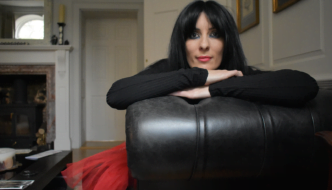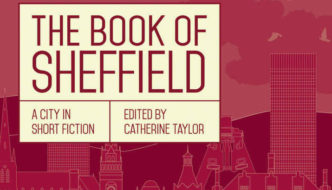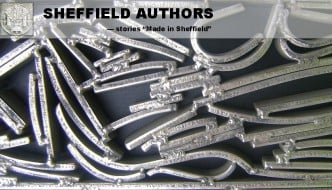Writing opportunities in early 2016
January 11, 2016

There’s an international flavour to the writing opportunities courtesy of Aerogramme Writers’ Studio. From short fiction to non-fiction there’s enough to keep every writer busy over the next two months.
The University of Notre Dame is offering every student accepted to its Creative Writing MFA program full scholarships plus a US$12,500 fellowship. Applications are open until 2 January.
Firewords Quarterly is an independent literary magazine with a strong emphasis on design, as well as substance. Firewords aims to be a publication where exciting new writers can have their voices heard and remembered. Submissions of short fiction, flash fiction and poetry for issue six, which carries theme ‘Secrets’, are open until 14 January.
Ploughshares is accepting fiction and non-fiction of up to 6000 words until 15 January. Writers are asked to include a short cover letter citing major publications and awards, as well as any association or past correspondence with a guest or staff editor.
Jentel Artist Residency Program is located on a 1000 acre plus working cattle ranch 20 miles southeast of Sheridan, Wyoming. It offers individuals a supportive environment in which to further their creative development. Application for residencies in summer and fall close on 15 January.
The Orwell Prize is Britain’s most prestigious prize for political writing. Entries are accepted in three categories: books, journalism and ‘exposing Britain’s social evils’. Closes 15 January.
Climate Fiction Short Story Contest is seeking work that, in some way, envisions the future of Earth and humanity as impacted by climate change. First prize is US$1000, with up to 15 of the best submissions to be published in a forthcoming online anthology, and considered for publication in the journal Issues in Science and Technology. There is no entry fee and writers may submit up to three stories each. Entries close 15 January.
PAGE International Screenwriting Awards provides a cash prize of $25,000 to a screenwriter who has written the best screenplay in any genre. There are also prizes in ten genre categories. The first place winner also receives national publicity. The early entry deadline is 15 January; final entries close 15 April.
Ink Still Wet is a crowd-sourced audio drama podcast. Contributions to the story can by made via the podcast’s website and all contributors are credited for their ideas.
Calibre Prize for an Outstanding Essay offers a first prize of AUD$5000 and is open to writers worldwide. Essays be between 3000 and 7000 words and must be written in English. The deadline is 18 January.
How to Write a Novel (Part 1: Plan & Outline) is an online course led by international best-selling authors and professors from the University of British Columbia’s Creative Writing MFA program. The course runs for six weeks and costs $295. Classes start on 20 January.
Litro Magazine is seeking submissions for its March 2016 print issue with the theme ‘Britishness’. It accepts short fiction, flash/micro fiction and non-fiction. Submissions close 25 January.
Caine Prize for African Writing is awarded to a short story (3000 to 10,000 words) by an African writer published in English, whether in Africa or elsewhere. ‘An African writer’ is taken to mean someone who was born in Africa, or who is a national of an African country, or whose parents are African. First prize is £10,000 (US$15,000) and the shortlisted writers will also receive a travel prize and £500 each. Entries close 31 January.
Deborah Rodgers Foundation is offering a £10,000 award to a first-time writer who needs financial support to complete their work. Entrants must be from the Commonwealth or Ireland and submissions should take the form of 20-30,000 words of a work in progress (fiction or non-fiction) which is not under option or contract. Applications close 31 January.
The 25th International Radio Playwriting Competition is presented by the BBC World Service and the British Council, in partnership with Commonwealth Writers and co-produced by the Open University. Three winners will receive fully paid trips to London and there are two cash prizes of £2200 (US $3350). Entries close 31 January.
Chicago Tribune’s Nelson Algren Award carries a first prize of US$3500 and has four finalist prizes ($1000 each) and five runners-up prizes ($500 each). Stories can be up to 8000 words and must be previously unpublished. Entries close on 31 January.
Disquiet Literary Prize Is open to writing in any genre. Winners will be published in Guernica (fiction), Ninth Letter (non-fiction) or The Collagist (poetry). One grand prize winner will receive a full scholarship, accommodations, and travel stipend to attend the sixth annual Disquiet International Literary Program in Lisbon taking place from 3 to 15 July, 2016. Runners-up and other outstanding entrants will also be considered for financial aid. Entries close 31 January.
Orlando Prize for Short Fiction is for stories up to 1500 words and is open to women writers worldwide. First prize is US$1000 and publication. Prizes of $1000 are also offered for creative non-fiction, poetry and flash fiction. Entries close 31 January.
Madeleine P. Plonsker Emerging Writer’s Residency Prize is offered by Lake Forest College in conjunction with &NOW Books. It offers an emerging fiction writer under forty years old with no major book publication a three-week residency at their campus.The stipend is US$10,000 with a housing suite and campus meals provided by the college. The writer’s completed manuscript will be published (upon approval) by &NOW Book. Applications are open between 1 January and 1 March but only the first 200 will be considered so apply early.
Bellevue Literary Review is seeking submissions of previously unpublished fiction, nonfiction, and poetry for an upcoming special issue on memory. Submission are needed by 1 February.
Cuttyhunk Island Writers’ Residency is an eight-day residency (7 – 15 June, 2016) for fiction and non-fiction writers on Cuttyhunk Island, seven nautical miles off the coast of southeastern Massachusetts, USA. The program’s writer-in-residence and workshop leader is Pulitzer-prize winning author, Paul Harding. Dedicated writers at all stages in their careers are invited to apply and two merit-based scholarships are available. Applications close 1 February.
The Meadow is the literary and arts journal of Truckee Meadows Community College in Reno, Nevada. The Meadow publishes work from both beginning and experienced writers and artists. The current reading period closes on 1 February.
Creative Nonfiction is seeking new essays about learning from nature from an upcoming issue. The Biomimicry Center at Arizona State University will award US$5000 to the best essay and the Creative Nonfiction editors will award $1000 to the runner-up. All essays will be considered for publication. Closes 1 February.
Southampton Review is dedicated to “discovering new voices and visions while savoring long-standing favorites”. Some of the established writers it has published include Billy Collins, Meg Wolitzer, Frank McCourt and David Rakoff. Submissions reopen on 1 February.
Post Road publishes twice yearly and accepts unsolicited poetry, fiction, nonfiction, short plays and monologues and visual art submissions. Submissions for the Winter issue open on 1 February.
Griffith University’s Josephine Ulrick Literature Prize is one of Australia’s richest short stories prizes. First prize is AUD$10,000 and second prize is $5000. Stories may be up to 2000 words. Griffith University also offers a poetry prize with equal prize money. Entrants must be Australian citizens or residents, and entries close on 12 February.
Bath Flash Fiction Award is runs four times each year and each round has a top prize of £1000. The maximum story length is 300 words and entrants can be from anywhere in the world. The next entry deadline is 14 February.
Writers’ & Artists’ Yearbook Short Story Competition offers the winner a cash prize of £500, a place on an Arvon residential writing course of your choice and publication on www.writersandartists.co.uk. Stories must be under 2000 words and reflect the theme ‘Ageing’. Entrants can be from anywhere in the world and there is no entry fee. Close 15 February.
Reader’s Digest’s 100 Word Story Competition is running for the sixth year. Open to writers in UK and Ireland only, there are three categories – one for adults and two categories for school-aged children. First prize is £2000 plus publication and there is no entry fee. Entries close 20 February.
Tin House is accepting submissions for its non-themed Winter 2016 issue. It is looking for fiction, poetry, non-fiction and interviews. Submissions close 28 February.
Medical Science Fiction Competition invites science-fiction short stories (and self-contained novel excerpts) of up to 3000 words that address themes of medicine, health, and illness. The top three entries, and up to seventeen runners-up, will be published in the competition anthology. Entry is free of charge and open to anyone over 18. Entries close on 29 February.
The Sun is an independent, monthly magazine based in North Carolina that publishes personal essays, short stories, interviews, poetry and photographs. All contributors are paid (up to $1500 for fiction) but the magazine receives over 1000 submissions per month, meaning responses can take three to six months.
Masters Review is accepting submissions for its New Voices series. The series is open to any new or emerging author who has not published a work of fiction or narrative nonfiction of novel length and writers are paid 10 cents per word up to US$200.
The Oxford American is seeking to appoint an experience, full-time editor to be based in its office in Little Rock, Arkansas (USA). The successful candidate with have established relationships with writers and a knack for recruiting new talent.
Kitaab is a Singapore-based literary website, publishing original fiction, essays and poetry on Asian themes. Submissions are considered all year round and all work must be in English. Kitabb pays S$50 – 100 per short story or essay.
Hippocampus Magazine accepts unsolicited submissions of memoir excerpts (a self-contained portion of a larger, book-length work), personal essays, flash creative nonfiction and works of creative nonfiction in an experimental format. Hippocampus prefers previously unpublished work, but will entertain submissions that have appeared elsewhere.
Guernica Magazine considers fiction between 1200 and 4500 words and “strongly prefers fiction with a diverse international outlook – or if it’s American, from an underrepresented or alternative perspective.” Works in translation are especially welcome.
Wrong Quarterly is a London-based literary magazine showcasing prose from both British and international writers. Its aim is to provide an inclusive platform for emerging writers worldwide. The Wrong Quarterly accepts fiction up to 6000 words and non-fiction up to 5000 words.
http://www.aerogrammestudio.com/2015/12/22/opportunities-for-writers-january-february-2016/




Comments